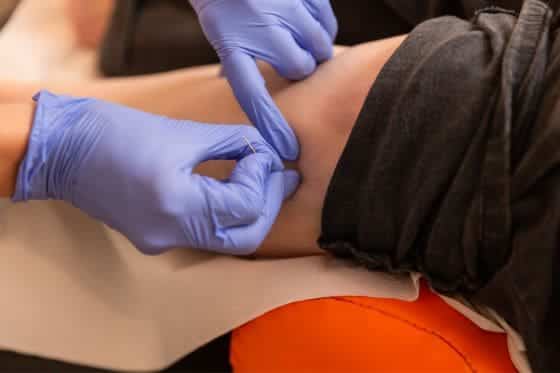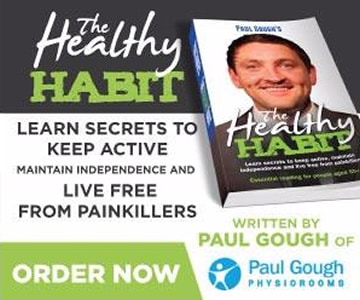In the realm of alternative medicine, acupuncture and dry needling are two techniques that often lead to many questions – what are they, what’s the difference, and how can they benefit me?
While both involve the insertion of thin needles into specific points on the body, they differ significantly in their origins, methods, and intended purposes.
Let’s delve into the differences between acupuncture and dry needling and explore the unique benefits each therapy offers.
Acupuncture vs Dry Needling
Origins
Acupuncture boasts a rich history dating back thousands of years. Rooted in the belief of restoring the flow of energy through meridians (a set of pathways) in the body, acupuncture aims to promote holistic health and well-being.
On the other hand, dry needling is a relatively modern technique. Based on neuroanatomy and the understanding of trigger points in muscles, dry needling focuses on releasing muscle tension and alleviating pain.
Technique
The technique employed in acupuncture involves the insertion of needles at specific acupuncture points along meridians, which are believed to correspond to different organs and bodily functions.
In contrast, dry needling targets myofascial trigger points—hyperirritable spots in skeletal muscles associated with tightness, pain, and dysfunction.
Purpose
Acupuncture, with its holistic approach, aims to balance the flow of energy in the body to address a wide range of health issues, including pain, stress, digestive disorders, and more.
Conversely, dry needling primarily focuses on releasing muscular tension and treating musculoskeletal pain conditions such as back pain, neck pain, tendonitis, and sports injuries.
Needle Depth
In acupuncture, needles are inserted at varying depths, depending on the specific acupuncture points being targeted.
Dry needling, on the other hand, typically involves the insertion of needles directly into trigger points in muscles, often at a shallow depth.
Response Sensation
During acupuncture sessions, patients may experience sensations such as tingling, warmth, or heaviness around the needle insertion sites. These sensations are considered integral to the therapeutic effects of acupuncture.
In contrast, patients undergoing dry needling may experience a localised twitch response when the needle is inserted into a trigger point, often associated with the release of muscle tension and pain relief.
Benefits
The benefits of acupuncture encompass pain relief, stress reduction, improved sleep quality, enhanced immune function, and overall well-being.
On the other hand, dry needling offers benefits such as reduced muscle tension, decreased pain, improved flexibility and range of motion, and accelerated recovery from injuries.
In Summary: Acupuncture vs Dry Needling
While both acupuncture and dry needling utilise the insertion of needles and can provide therapeutic benefits, they differ in their underlying principles, techniques, and intended purposes.
Acupuncture focuses on restoring balance to the body’s energy flow, while dry needling targets muscular trigger points to alleviate pain and improve musculoskeletal function.
Your Next Steps
Curious about whether acupuncture is right for you?
At Paul Gough Physio Rooms, we offer FREE options to help you explore the benefits of acupuncture.
Schedule a FREE 15 minute taster session to discuss your health concerns in detail with our experienced team.
During your visit, you’ll have the chance to meet our experienced team and delve into your health concerns in depth.
We’ll dedicate time to understand your individual needs and goals, enabling us to tailor our approach to suit you best.
This face-to-face consultation offers you the opportunity to ask any questions, learn more about acupuncture, and figure out if it’s right for you.
Or opt for a FREE 15 minute telephone consultations to learn more about how acupuncture can benefit you.
During your call, you get the opportunity to speak with one of our expert team members about your health concerns and explore how acupuncture could help you.
Take the first step towards a brighter, pain-free future and book your appointment with us today!
Other Free Resources For Acupuncture
Take a Look at Our Acupuncture Page HERE!
Read Our Blog – The Top 10 Benefits of Acupuncture: Unlock Natural Healing
Read Our Blog – Chronic Joint Pain: Does Acupuncture Really Work For Joint Pain?


